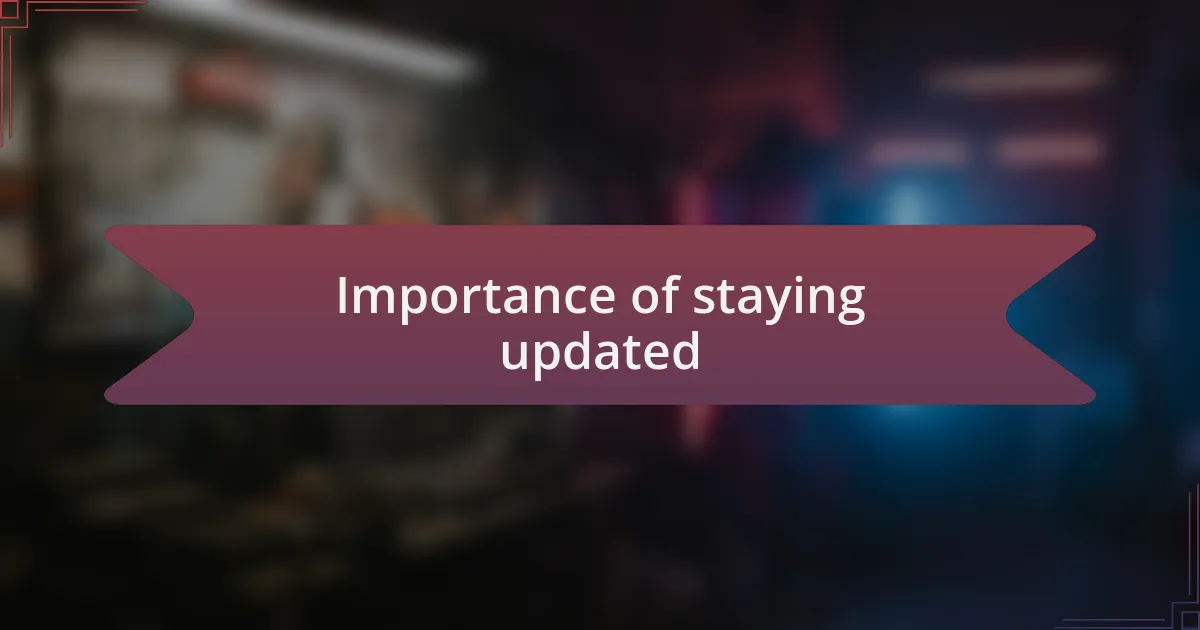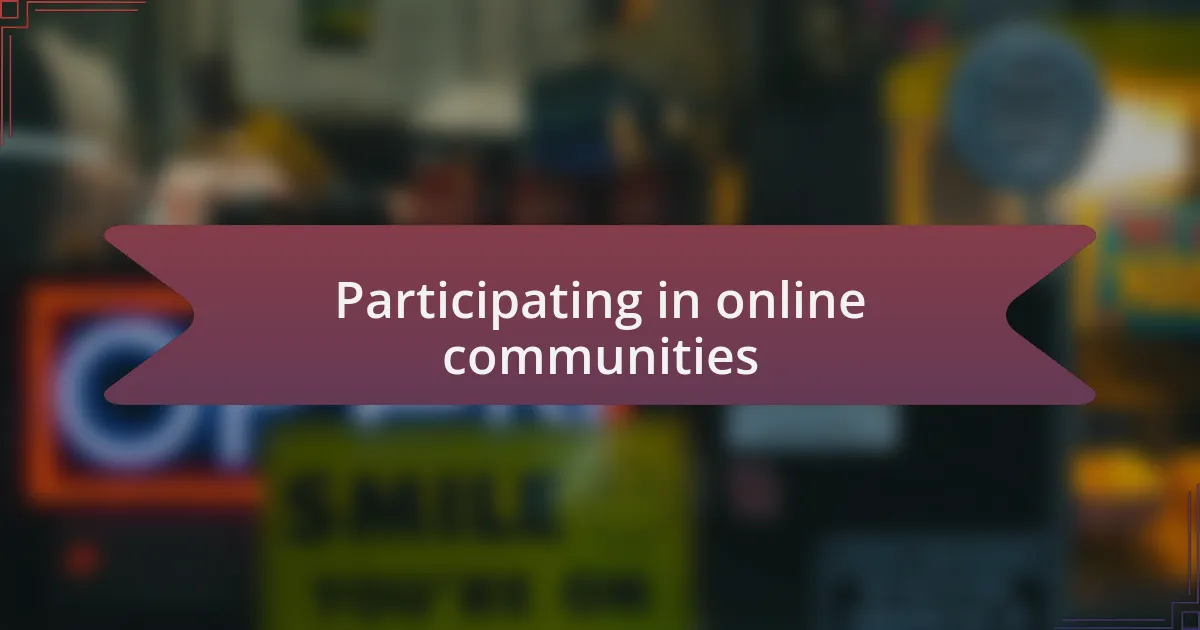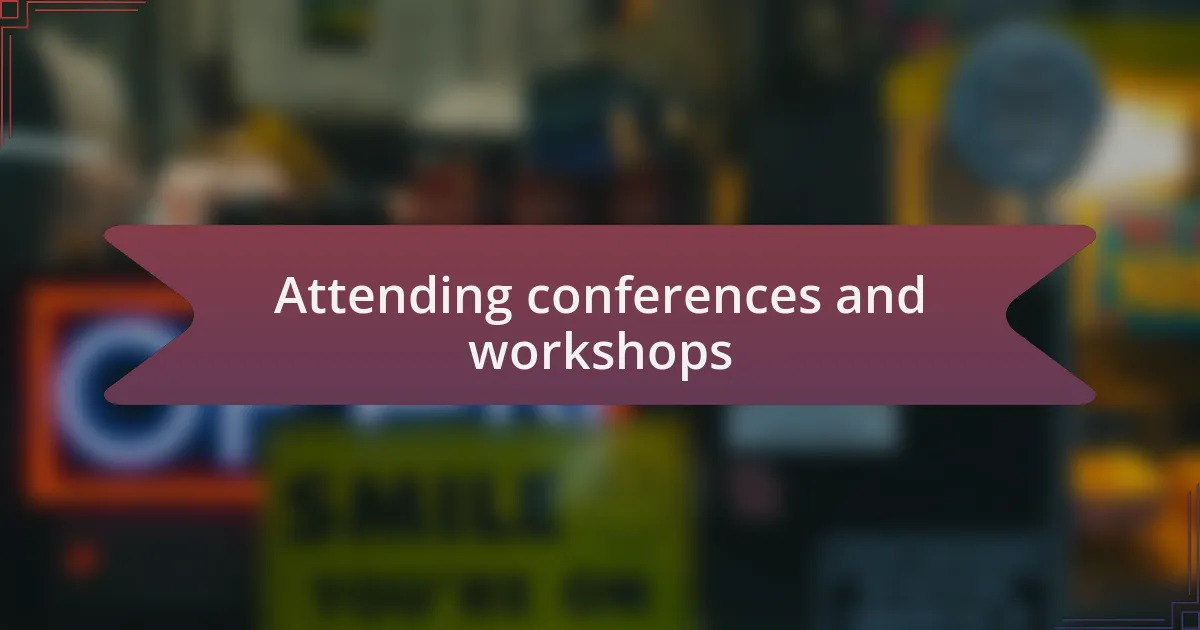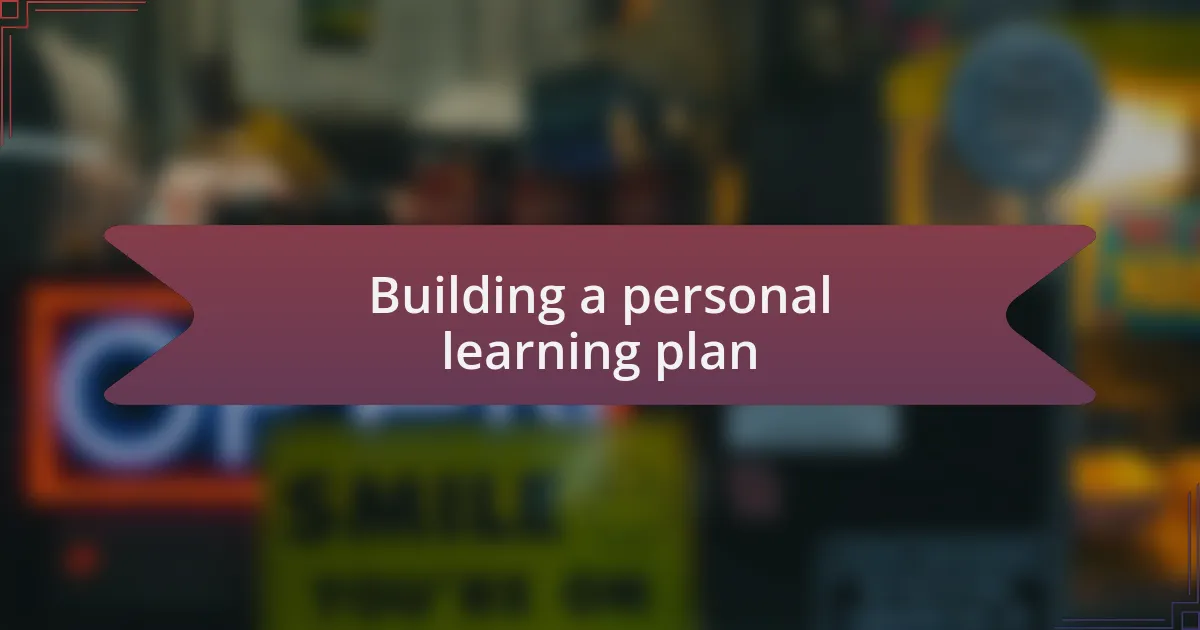Key takeaways:
- Engagement with the software testing community, through meetups and online forums, fosters new ideas and enhances learning.
- Staying updated on testing trends is essential for personal growth, risk mitigation, and fostering innovation within teams.
- Participating in conferences, workshops, and online communities provides hands-on experiences and networking opportunities that can significantly impact career development.
- Building a personal learning plan, with achievable milestones and diverse resources, helps in effectively mastering new skills and technologies.

Understanding software testing trends
Staying attuned to software testing trends requires more than just reading articles; it involves actively engaging with the community. I remember attending a local tech meetup where a speaker shared insights on automated testing and its impact on time efficiency. It was an eye-opener, as I realized that such interactions can spark new ideas and challenge our existing perceptions.
One thing that often comes to my mind is the rapid evolution of testing methodologies, like the shift towards DevOps. Has anyone else felt overwhelmed by the pace at which tools and best practices are introduced? For me, embracing this shift meant adapting my testing strategies to align more closely with development cycles. This not only enhanced my skill set but also improved collaboration within my team.
Another intriguing trend is the testing of artificial intelligence systems. As I delve deeper into this area, I often wonder how we can ensure the reliability of AI outputs amidst their inherent unpredictability. My experiences have taught me that understanding these trends isn’t just about technical skills; it’s about fostering a mindset of continuous learning and curiosity. The more curious we are, the better equipped we become to assess and implement these emerging trends effectively.

Importance of staying updated
Staying updated is crucial not just for personal growth but for remaining relevant in a fast-paced industry. I recall a time when I neglected to keep up with the latest testing tools, and it quickly became apparent when my peers informed me about new features that could significantly streamline our workflows. I felt a mix of embarrassment and resolve, reinforcing how vital it is to stay informed to contribute effectively.
With software failures having real-world consequences, the importance of being current cannot be overstated. Think about it: how many times have you encountered a bug in a production environment, only to realize that a new testing technique could have prevented it? This realization hit me hard when a minor oversight led to customer frustration. By staying updated, we not only mitigate risks but also enhance the user experience we’re responsible for.
Moreover, keeping pace with trends fosters a culture of innovation within teams, encouraging collaboration and creative problem solving. I’ve seen firsthand how sharing insights on emerging techniques can inspire colleagues to think differently about their projects. Isn’t it amazing how a simple discussion can lead to breakthroughs that no one expected? Embracing new knowledge offers an avenue for continuous improvement, and that’s something I truly believe we should all strive for in our careers.

Sources for testing news
When it comes to staying in the loop with testing news, I turn to various reliable sources. For instance, I frequently visit specialized websites like Ministry of Testing, where I find not only articles but also forums filled with discussions that help me grasp current trends and community sentiments. Just the other day, I stumbled upon a thread that discussed the latest automation tools, and I felt a rush of excitement as I read about the possibilities they could bring to my projects.
Podcasts have also become an essential part of my routine. Listening to industry experts share their perspectives while I commute has truly transformed how I absorb information. I remember being particularly inspired by an episode on exploratory testing; it reshaped my understanding and approach to user-centric testing strategies. Have you ever considered how much deeper insights can be gained just by tuning in while you go about your day?
Furthermore, newsletters are a treasure trove of curated information. I appreciate receiving weekly summaries of the latest developments right in my inbox. It saves me time and ensures I don’t miss key updates. Once, a link I clicked on from a newsletter led me to a comprehensive guide on performance testing tools that ultimately changed the way I handled load testing in our last project. Isn’t it fascinating how one small source can lead to significant improvements in our work?

Participating in online communities
One of the best ways I’ve found to stay updated with testing trends is by actively participating in online communities. For instance, I engage in discussions on platforms like Reddit and the Ministry of Testing community. It’s fascinating how these conversations illuminate different perspectives and experiences. I remember a lively exchange about manual testing strategies that opened my eyes to techniques I’d never considered before. Have you ever realized how much you can learn just by sharing your thoughts and hearing others’?
In addition, joining specific groups on LinkedIn has been a game changer for me. I often come across posts that spark my curiosity and prompt deeper exploration. Recently, I read a thought-provoking article shared in one such group, which compared various testing frameworks. It reignited my passion for experimenting with new tools in my own projects. How often do you find that a single post can transform your approach to a task?
Lastly, participating in webinars hosted by these communities has enriched my understanding tremendously. I once attended a session that delved into the future of AI in testing. The insights shared by industry leaders were not only enlightening but also actionable. I left feeling motivated to implement some new strategies right away. What’s holding you back from joining such discussions? Embracing these opportunities can truly elevate your testing skills.

Attending conferences and workshops
Attending conferences and workshops has been a significant part of my journey in keeping up with testing trends. I vividly recall my first testing conference; I walked in feeling a bit overwhelmed but left revitalized by the energy and knowledge shared by other attendees. There’s nothing quite like connecting with industry experts and fellow testers who share a passion for innovation. Have you ever felt that surge of inspiration from simply being in a room full of like-minded individuals?
Workshop sessions, in particular, have given me hands-on experience that books and articles cannot match. I participated in a hands-on lab once where we explored real-time bug tracking using emerging tools. The experience not only refined my skills but also showed me the practical applications of theoretical concepts I had only read about before. It made me realize how essential it is to bridge that gap between theory and practice. Have you engaged in any workshops that challenged your current understanding?
Conferences also offer invaluable networking opportunities, allowing me to meet people who are shaping the future of software testing. A chance encounter with a seasoned tester at one such event led to a mentorship that has profoundly influenced my career. It’s amazing how these connections can open doors and lead to unexpected opportunities. Have you ever thought about the lasting relationships you could build by simply stepping out of your comfort zone and attending these events?

Building a personal learning plan
Building a personal learning plan starts with assessing your current knowledge and identifying gaps you want to fill. I remember when I first mapped out my learning goals; I took a good hard look at my skill set and realized that I had only scratched the surface of automation testing. That moment was a turning point for me—do you ever reflect on where you stand in your career and feel compelled to push further?
Next, I recommend setting achievable milestones. For instance, during one particularly busy quarter, I decided to dedicate weekends to mastering a new testing framework. Breaking down my learning into smaller, manageable tasks helped me stay focused and motivated. Have you found a study technique that keeps you engaged even on the most hectic days?
Finally, incorporate diverse resources into your plan. I like to diversify my learning by mixing books, online courses, and practical projects that interest me. For example, while experimenting with a new tool, I stumbled upon a fantastic community forum where users shared their experiences and solutions. The vibrant discussions not only enriched my understanding but also kept my curiosity alive. Have you tapped into such communities that could enhance your learning?